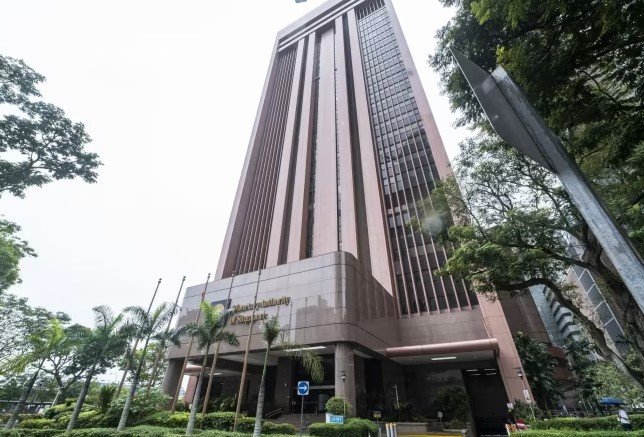Singapore’s financial watchdog just fired a loud warning shot — and global banks are listening. In one of the city-state’s toughest stances yet on money laundering, regulators handed down a collective fine of S$27.45 million (US$21.5 million) to nine financial institutions, while also banning four individuals from working in finance. The move stems from the aftermath of a sweeping S$3 billion money laundering bust in 2023, and it’s rattling boardrooms from Zurich to Hong Kong.
It’s the second-largest set of anti-money laundering penalties Singapore has ever imposed, and it’s got the industry’s attention. For a financial center that thrives on trust, neutrality, and clean books, the message couldn’t be clearer: if you’re hiding dirty money, pack your bags.
One Case, Nine Institutions, and a Long Shadow
The scandal at the center of this storm broke wide open nearly two years ago. In August 2023, Singapore police arrested 10 Chinese nationals in a sprawling raid that looked more like a spy movie than a white-collar operation. The authorities froze assets that included luxury cars, real estate, and millions in crypto.
Turns out, that was just the beginning.
Fast-forward to now, and the Monetary Authority of Singapore (MAS) is naming names and tightening screws. Six banks and three other financial firms have been fined, while several individuals were either reprimanded or outright banned from working in the local financial industry for up to six years.
The monetary penalties were spread across institutions like Citibank, DBS, and others, though MAS has not publicly disclosed all names just yet. But insiders say the reputational blow may hurt more than the dollar amount.

A Growing Pattern of Enforcement
While the fines are steep, they’re not unprecedented in Singapore. The last time regulators came down this hard was during the 1MDB scandal, which saw institutions like BSI and Falcon Bank lose their local licenses entirely. That saga, involving billions siphoned from Malaysia’s sovereign wealth fund, forced Singapore to reevaluate its controls.
This latest crackdown feels eerily familiar — and just as sweeping. Steve Vickers, CEO of SVA, a Hong Kong-based political risk consultancy, summed it up bluntly: “Once [Singapore authorities] get their teeth into something like this, they will not back off.”
And they haven’t. Not even close.
According to Vickers, there’s another layer to this too: the cultural import problem. When foreign banks recruit staff from troubled institutions without due diligence, they risk bringing along the same shady habits — a “contagion” Singapore is desperate to contain.
Money-Laundering Tightrope: Global Flows vs. Clean Image
Singapore’s financial allure has always hinged on one thing: credibility. And in the zero-sum game of international capital, perception matters almost as much as policy.
MAS Deputy Managing Director Ho Hern Shin said it plainly: “Where there are serious failings by financial institutions and their employees, MAS will not hesitate to take firm action.”
The regulators aren’t just relying on punishment, though. There’s a big push toward stronger collaboration between financial institutions and the regulator. That means tighter AML (Anti-Money Laundering) compliance, better transaction monitoring, and less room for plausible deniability.
At least one former banker told Asia Sentinel that banks have learned to factor in fines as part of the cost of doing business. “Globally, large fines have become normalized,” he said, implying many institutions simply see them as a slap on the wrist — unless it comes with reputational carnage or a license revocation.
That said, Singapore’s tone is noticeably sharper this time.
Table: Breakdown of Key Actions in 2025 Crackdown
| Action Taken | Details |
|---|---|
| Total Fines Levied | S$27.45 million (US$21.5 million) |
| Number of Financial Institutions | 9 (6 banks + 3 financial firms) |
| Individuals Banned | 4 people (3 to 6 years) |
| Assets Originally Seized (2023) | S$3 billion (US$2.4 billion) |
| Arrested in Initial Sweep | 10 Chinese nationals |
| Date of MAS Fine Announcement | July 4, 2025 |
Foreign Banks Reassess Internal Controls
International banks operating in Singapore — and there are many — are now scrambling behind the scenes. The latest MAS action is forcing compliance teams to re-audit internal protocols, especially where staff were inherited through mergers or offshore postings.
There’s also growing unease over legacy structures. Some institutions still rely heavily on outdated systems or fragmented compliance chains, and that’s becoming a serious liability. The MAS crackdown shows no patience for that.
For some banks, especially those used to looser enforcement in other jurisdictions, Singapore is looking a lot less like a safe haven and more like a legal landmine.
Not Just Symbolic: A Strategic Warning to the Industry
Sure, S$27.45 million might sound manageable when spread across global institutions. But the warning shot here is strategic. Singapore is telling the world: “You don’t get to use our backyard to clean your mess.”
There’s even a sense that this move was timed for maximum message impact — the announcement came just before a slew of financial forums and regional meetings. The MAS clearly wants this case to stick in corporate memory.
• The regulator has already hinted that more action may follow, including reviews of other asset classes like digital tokens and luxury real estate.
A single sentence from MAS’s Ho Hern Shin sums up where things are going: “We will continue to monitor and take action where needed.”
Culture, Not Just Compliance, Is Under Review
The biggest takeaway? It’s not just about processes. It’s about culture. MAS is signaling that no amount of compliance checklists will save you if the internal tone isn’t right.
And in an industry where junior bankers sometimes chase high-risk clients for career boosts, that’s a hard culture to unlearn.
Vickers’s warning cuts deep: “If you’ve imported staff from other institutions that have had problems, you’re probably importing a culture of such abuse into your own organization.”
Singapore knows that stopping money laundering means more than fines and bans — it means changing how banks think. That’s a tall order. But, judging by how this case is being handled, they’re ready to try.







